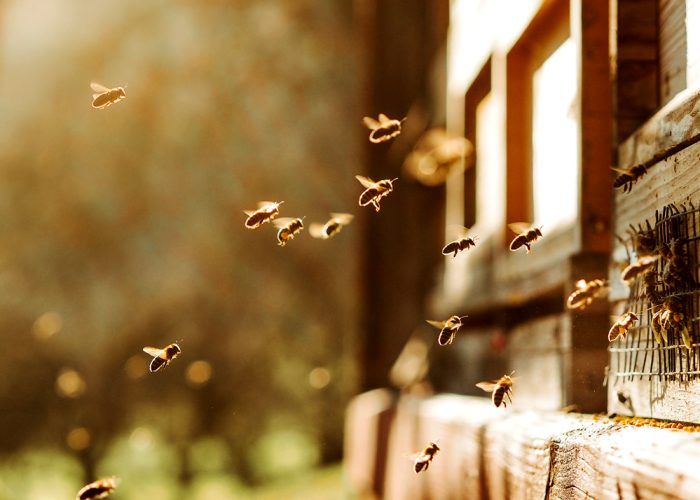
Home » Hobbyist Beekeepers
As a hobbyist beekeeper, your dedication to maintaining honeybee colonies improves the health of our global ecosystem. Your efforts transform backyards, community spaces, and educational institutions into vibrant sanctuaries for honeybees, making a significant contribution to their preservation and well-being.
Your involvement extends far beyond the hive. By fostering honeybee populations, you contribute to pollination, essential for the survival of many plant and crop species. This activity supports local agriculture and sustains natural plant diversity, important for a balanced ecosystem. Beyond pollination, your commitment to beekeeping also serves as an educational resource, raising awareness about the challenges facing pollinators and the importance of biodiversity. This awareness encourages community actions towards a more pollinator-friendly environment, amplifying the positive impact of your beekeeping efforts on global conservation. Here are some key benefits brought forth by backyard beekeeping:
These are only some of the ways that hobbyists positively influence global honeybee conservation. Hobbyists’ efforts, however, are often deeply impacted by various factors, such as pests, environmental stressors, and diseases such as American Foulbrood (AFB).
It’s important to note that current disease treatment and prevention methods often rely heavily on chemical solutions and antibiotics. While these methods can be effective in the short term, they can also harm overall hive health, leading to concerns about the sustainability of such practices and the long-term well-being of honeybee populations.
American Foulbrood is a bacterial disease caused by the spore-forming bacterium Paenibacillus larvae. The prevalence of this highly contagious disease poses a dire threat, with studies indicating presence of P. larvae spores in up to 50% of hives in some areas. Traditional methods for managing AFB involve treatment with antibiotics, or destruction of infected hives by burning to prevent further spread of spores.
Purchasing queen bees inoculated with Dalan’s AFB Vaccine is an innovative solution for hobbyists to help protect their honeybees from this devastating disease. Administered to the queen, the vaccine has shown increased resistance in larvae to AFB infection in laboratory studies, offering a safe and sustainable solution to help protect hives from this disease.
Here are a few more ways hobbyists can benefit from Dalan’s AFB vaccine:
These reasons and more are why hobbyists are encouraged to consider queens inoculated with Dalan’s AFB vaccine. Take the proactive step to safeguard your honeybee colonies from AFB and promote their well-being by contacting Dalan today for more information on all our beekeeping resources. Additionally, learn more about our vaccine technology and how to purchase vaccinated queens.
American Foulbrood is a bacterial disease caused by the spore-forming bacterium Paenibacillus larvae. The disease-causing bacteria can be present at subclinical levels in hives, which can erupt at any time. Infective spores may last in the environment for several decades.
Dalan’s AFB vaccine is an innovative solution that helps protect honeybees from American Foulbrood infection. By supporting honeybee health, you’re ensuring your local pollinator populations thrive.
Hobbyists are encouraged to consider queens inoculated with Dalan’s AFB vaccine for several reasons. It is a pure, safe, and sustainable preventative treatment, potentially reducing the need for antibiotics. It is also laboratory-tested and proven for safety and efficacy, providing a proactive solution to safeguard honeybee colonies.
The vaccine, containing inactivated (killed) P. larvae, is administered orally to the queen bee. Attendants caged with the queen are fed queen candy containing the vaccine. Work carried out in Dalan’s laboratories has indicated that the attendants digest the vaccine and produce royal jelly containing vaccine particles. The royal jelly is fed to the queen, and as she ingests it, pieces of the vaccine are transported via her fat body to her ovaries where it is deposited in the eggs. The developing larvae are exposed to the vaccine and start to build up immunity before they hatch.
Yes, the vaccine is suitable for use in organic agriculture. It is non-GMO and does not contain any chemicals or harmful preservatives.

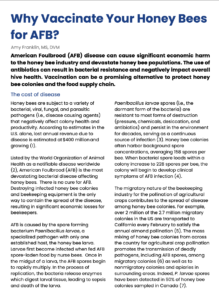 This white paper speaks to how vaccination can be a promising alternative to protect honey bee colonies and the food supply chain.
This white paper speaks to how vaccination can be a promising alternative to protect honey bee colonies and the food supply chain.
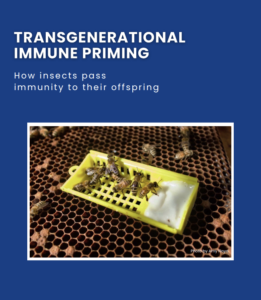 This white paper is on the topic of: How insects pass immunity to their offspring.
This white paper is on the topic of: How insects pass immunity to their offspring.
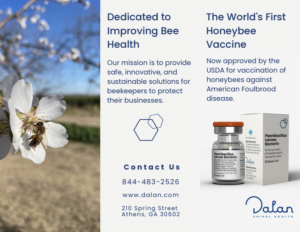
Download our brochure to discover more about Dalan Animal Health’s AFB Vaccine, its benefits, and how it works.
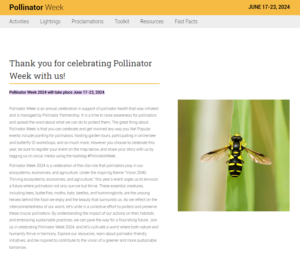 Pollinator Week 2024 will take place June 17 - 23, 2024. National Pollinator Week is an annual event celebrated internationally in support of pollinator health.
Pollinator Week 2024 will take place June 17 - 23, 2024. National Pollinator Week is an annual event celebrated internationally in support of pollinator health.
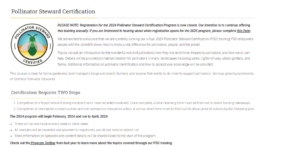
PSC empowers people with the scientific know-how to make a real difference for pollinators, people, and the planet. This course is ideal for home gardeners, land managers, farmers, and anyone that wants to do more to support pollinators. Join the growing community of Certified Pollinator Stewards!
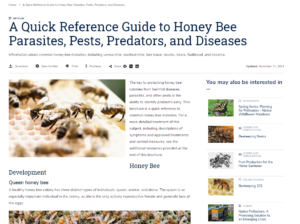
Information about common honey bee maladies, including varroa mite, tracheal mite, bee louse, skunks, bears, foulbrood, and nosema.
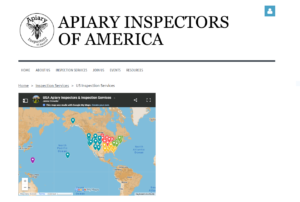
Apiary Inspectors are the regulatory authority responsible for the enforcement and compliance of local laws and regulations that relate to honey beekeeping, colony transport and health. For honey bee health issues and inspections, contact your state’s Apiary Inspector.
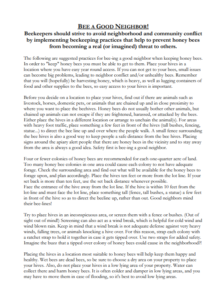
Beekeepers should strive to avoid community conflict by implementing beekeeping practices that help to prevent honey bees from becoming a real (or imagined) threat to others. The following are suggested practices for being a good neighbor when keeping honey bees.
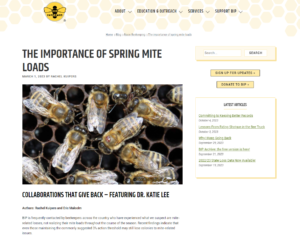
Learn why it’s important to take control of mite loads in the spring to prevent colony losses and negative colony health.
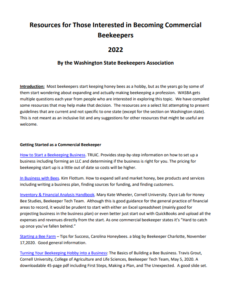 Are you a hobbyist interested in expanding your beekeeping passion into a profession? View these resources from the Washington State Beekeepers Association for a guide on becoming a large-scale beekeeper.
Are you a hobbyist interested in expanding your beekeeping passion into a profession? View these resources from the Washington State Beekeepers Association for a guide on becoming a large-scale beekeeper.
 This whitepaper speaks to how vaccination can be a promising alternative to protect honey bee colonies and the food supply chain.
This whitepaper speaks to how vaccination can be a promising alternative to protect honey bee colonies and the food supply chain. This whitepaper is on the topic of: How insects pass immunity to their offspring.
This whitepaper is on the topic of: How insects pass immunity to their offspring. Download our brochure to discover more about Dalan Animal Health’s AFB Vaccine, its benefits, and how it works.
Download our brochure to discover more about Dalan Animal Health’s AFB Vaccine, its benefits, and how it works.Get the latest news on what we’re up to by subscribing to our monthly newsletter. Our newsletter provides exciting updates, news and events, and educational resources for all beekeepers.
© 2025 Dalan Animal Health. All rights reserved.